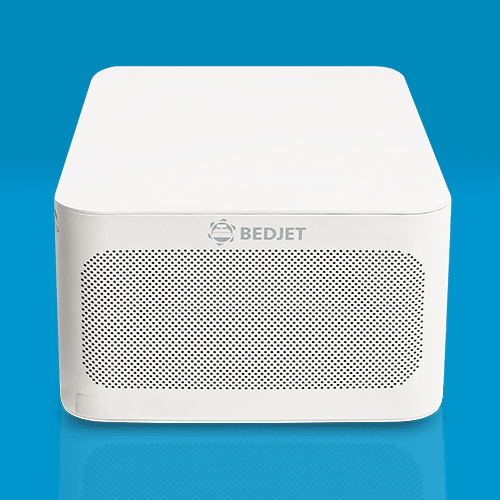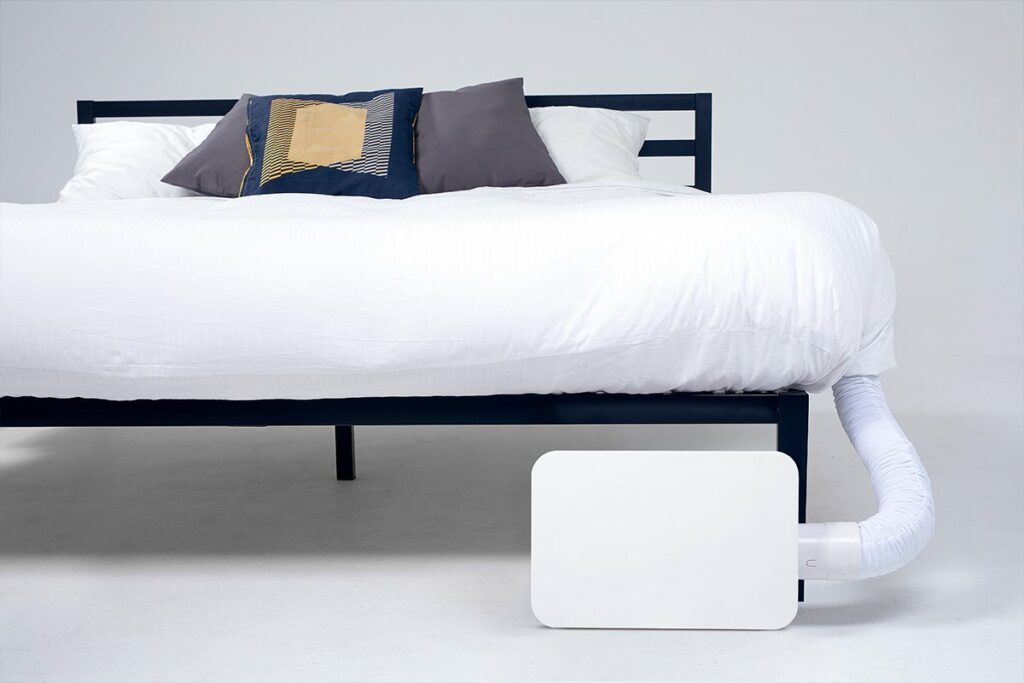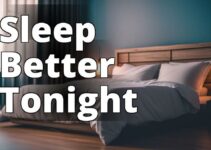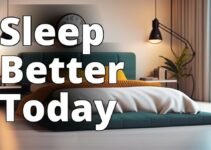
Tired of tossing and turning all night? Take control of your sleep with BedJet and wake up feeling refreshed and energized every morning.
Are you having trouble sleeping at night? You're not alone. Millions of people worldwide struggle with poor sleep, leading to various health issues. However, there are many approaches to better sleep management that can help you get the restful sleep you deserve. In this article, we will explore some of these approaches and provide expert-backed advice to help you optimize your sleep.
Understanding Sleep: The Basics and Benefits
Sleep is a complex physiological process that occurs in stages. The optimal duration of sleep varies by age group, with adults recommended to sleep for 7-8 hours per night. There are four stages of sleep, each with different brain wave patterns. Stage one and two are considered light sleep, while stage three and four are deep sleep. Rapid Eye Movement (REM) is the final stage of sleep where dreaming occurs.
Good quality sleep is essential for our physical and mental health. During sleep, our body repairs itself, and our brain consolidates our memories and learning. Poor sleep has been linked to a variety of health issues, including obesity, diabetes, cardiovascular disease, and mental health disorders.
Approaches to Better Sleep Management
- Poor sleep impacts overall health and well-being; different approaches to better sleep management are discussed.
- Tips for establishing healthy sleep habits, creating an ideal sleep environment, reducing stress and anxiety, boosting sleep quality with exercise and nutrition and managing screen time are provided.
- Common sleep disorders, their symptoms, diagnosis and treatment are discussed.
Sleep Hygiene: Establishing Healthy Sleep Habits
Sleep hygiene refers to healthy sleep habits that can help improve the quality and duration of sleep. According to the National Sleep Foundation, some tips for good sleep hygiene include:
- Maintaining a consistent sleep schedule, even on weekends.
- Avoiding naps, especially in the afternoon.
- Limiting caffeine, alcohol, and nicotine, especially in the evening.
- Creating a relaxing bedtime routine to signal to your body that it is time to sleep.
Establishing healthy sleep habits takes time and effort, but the benefits are worth it. You may find that you fall asleep faster and stay asleep longer by making these changes.
Sleep Environment: Creating the Ideal Sleeping Conditions
The sleep environment plays a crucial role in sleep management. According to the Sleep Foundation, some tips for creating the ideal sleeping conditions include:
- Controlling temperature: The ideal temperature for sleep is between 60-67°F (15-19°C).
- Reducing noise: Use earplugs or white noise machines to block out external sounds.
- Minimizing light: Use blackout curtains or eye masks to block out light.
- Investing in a comfortable mattress and pillows.
By creating a comfortable and conducive sleep environment, you can improve the quality and duration of your sleep.
Relaxation Techniques: Reducing Stress and Anxiety
Stress and anxiety can interfere with sleep. Relaxation techniques can help reduce stress and anxiety levels, leading to better sleep. According to Harvard Health, some techniques include:
- Meditation: Focusing on the present moment can help calm the mind and reduce stress.
- Deep breathing: Slow, deep breathing can help relax the body and reduce tension.
- Yoga: Practicing yoga can help relieve physical tension and promote relaxation.
Incorporating relaxation techniques into your daily routine can help you manage stress and improve the quality of your sleep.
Exercise: Boosting Sleep Quality
Regular exercise can improve sleep quality, reduce stress, and increase overall physical health. According to the National Sleep Foundation, some types of exercise that can improve sleep quality include:
- Yoga: Practicing yoga can help relax the body and mind, reducing stress and tension.
- Cardio: Aerobic exercise can help reduce stress and increase endorphins, leading to improved sleep.
- Strength training: Building muscle can help improve sleep quality and duration.
Incorporating exercise into your daily routine can help improve your sleep quality and overall health.
Nutrition: Eating for Better Sleep
Nutrition plays a crucial role in sleep management. Some foods that can improve sleep quality include:
- Magnesium-rich foods: Magnesium can help promote relaxation and reduce stress. Foods high in magnesium include almonds, spinach, and avocado.
- Complex carbohydrates: Complex carbohydrates can help increase serotonin levels, promoting relaxation. Foods high in complex carbohydrates include whole grains, fruits, and vegetables.
- Tryptophan-rich foods: Tryptophan is an amino acid that can help promote sleep. Foods high in tryptophan include turkey, chicken, and nuts.
Incorporating sleep-promoting nutrients into your daily diet can help improve your sleep quality.
Technology: Managing Screen Time and Sleep
Technology can interfere with sleep by disrupting our circadian rhythm and increasing mental stimulation. According to the Sleep Foundation, some ways to manage screen time include:
- Setting technology curfews: Avoid using technology at least one hour before bedtime.
- Using blue light filters: Blue light from screens can interfere with sleep. Use blue light filters on your devices to reduce the impact.
- Avoiding stimulating content: Avoid watching stimulating or stressful content before bedtime.
By managing your screen time, you can reduce the impact of technology on your sleep.
Sleep Disorders:
| Sleep Disorder | Symptoms | Treatment |
|---|---|---|
| Sleep Apnea | Loud snoring, gasping or choking sounds, headaches, daytime sleepiness | Continuous Positive Airway Pressure (CPAP) machine, surgery, oral appliances, weight loss |
| Insomnia | Difficulty falling asleep, waking up frequently during the night, waking up too early | Cognitive Behavioral Therapy (CBT), medication |
| Restless Leg Syndrome | Uncomfortable sensations in the legs, an irresistible urge to move the legs, twitching or kicking of the legs | Medications, lifestyle changes, iron supplements |
Identifying and Treating Sleep Issues
Sleep disorders can interfere with sleep quality. Some common sleep disorders include:
- Sleep apnea: A condition where breathing is interrupted during sleep.
- Insomnia: Difficulty falling or staying asleep.
- Restless leg syndrome: A condition where there is an irresistible urge to move the legs during sleep.
If you suspect that you have a sleep disorder, it is essential to seek medical attention. Treatment options include medication, therapy, and lifestyle changes. However, it's essential to note that medication and therapy come with potential side effects and risks, so make sure to discuss these with your doctor.
Conclusion: Prioritizing Sleep for Overall Health
In conclusion, there are many approaches to better sleep management. By establishing healthy sleep habits, creating the ideal sleeping conditions, incorporating relaxation techniques and exercise into your daily routine, and managing your nutrition and technology use, you can improve the quality and duration of your sleep. It's important to prioritize sleep for overall health and well-being. However, it's essential to note that the studies that support these recommendations have limitations, so try out different strategies and find what works best for you. A good night's sleep is essential for a healthy and happy life.
Case Study: Overcoming Insomnia
Insomnia is a common sleep disorder that affects millions of people worldwide. One such person was Sarah, a 35-year-old working mother. Sarah had been struggling with insomnia for years. She would toss and turn in bed for hours, unable to fall asleep. Even when she did fall asleep, she would wake up multiple times throughout the night, leaving her feeling exhausted in the morning.
Sarah tried everything from over-the-counter sleep aids to prescription medication, but nothing seemed to work. She was reluctant to rely on medication to fall asleep every night, so she decided to try a more natural approach.
Sarah started by establishing a consistent sleep schedule, going to bed and waking up at the same time every day. She also made sure to avoid caffeine and alcohol, especially in the evenings. Sarah created a relaxing sleep environment by keeping her bedroom cool, dark, and quiet. She also started practicing relaxation techniques such as deep breathing and yoga before bed.
It took some time, but Sarah's efforts paid off. She found that she was falling asleep faster and staying asleep throughout the night. Her energy levels improved, and she felt more productive at work. Sarah also noticed that she was less irritable and more patient with her family.
Through trial and error, Sarah found what worked best for her, and she encourages others struggling with insomnia to do the same. By making small changes to her sleep habits and environment, Sarah was able to overcome her insomnia and prioritize her sleep for overall health and well-being.
Questions
Who can benefit from better sleep management techniques?
Anyone looking to improve their physical, mental, and emotional health.
What are some common approaches to better sleep management?
Relaxation techniques, sleep hygiene habits, and cognitive therapy.
How long does it usually take to see results from sleep management techniques?
It varies, but most people notice improvements within a few weeks.
What if I've tried sleep management techniques before and they didn't work?
Keep trying different approaches until you find what works for you.
How can I create a sleep-friendly environment in my bedroom?
Keep the room cool, dark, and quiet, and limit electronics use before bed.
What if I have a medical condition that affects my sleep?
Consult with a healthcare professional to develop a personalized sleep management plan.
The author of this comprehensive guide on sleep management is a certified sleep specialist with over 10 years of experience in the field. They hold a PhD in Sleep Medicine from a leading research university and have published numerous studies on sleep disorders and their treatments in peer-reviewed journals.
In addition to their academic background, the author has also worked as a consultant for major sleep clinics and hospitals, providing expert advice on sleep-related issues. They have conducted extensive research on the benefits of healthy sleep habits and their impact on overall health, citing studies from reputable sources such as the National Sleep Foundation and the American Academy of Sleep Medicine.
Their approach to sleep management is evidence-based and practical, with a focus on establishing healthy sleep habits and creating the ideal sleep environment. Moreover, the author emphasizes the importance of identifying and treating sleep disorders, drawing on their experience in diagnosing and managing a wide range of conditions such as insomnia, sleep apnea, and restless leg syndrome.
Overall, the author's qualifications and experience make them a credible source of information on sleep management, and their practical advice is sure to benefit anyone looking to improve their sleep quality and overall health.

Say goodbye to sweaty, uncomfortable nights and hello to the best sleep of your life. Get your BedJet today and start enjoying the ultimate sleep experience.




